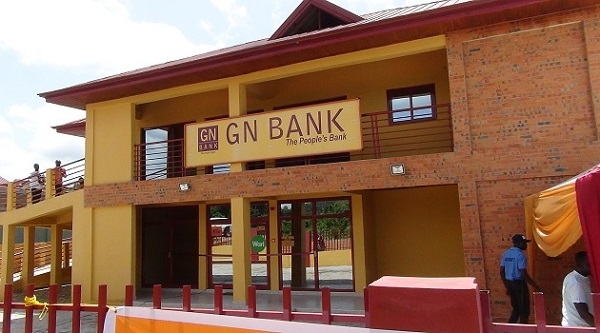
The Bank of Ghana (BoG) has defended its 2019 decision to revoke GN Bank’s license, citing significant regulatory violations as the primary reason.
According to the Central Bank, GN Bank’s failure to adhere to crucial financial regulations and banking standards posed a threat to its operational stability. Consequently, the BoG asserts that it cannot reinstate GN Bank’s license despite the demands from the bank’s management.
In a statement from August 2019, the BoG highlighted GN Bank’s deficiencies in capital adequacy, liquidity, governance, and risk management as key reasons for the revocation.
GN Bank repeatedly failed to meet the minimum capital requirements, raising doubts about its ability to absorb losses and safeguard depositors. The bank also faced challenges in liquidity management, affecting its ability to meet customer withdrawal demands.
Additionally, there were significant flaws in GN Bank’s governance and risk management practices, leading to operational inefficiencies and increased risk exposure. For example, GN Bank suspended operations at 70 branches, including its Head office at Asylum Down and Castle Road branch, and temporarily removed its entire management team without the BoG’s approval, violating section 25 (2) of the Banks and Specialised Deposit-Taking Institutions Act, 2016 (Act 930).
As a result, the BoG revoked GN Bank’s license to protect the financial system and depositors.
On August 16, 2019, the BoG revoked the licenses of 23 insolvent savings and loans companies and finance house companies under Section 123 (1) of the Banks and Specialised Deposit-Taking Institutions Act, 2016 (Act 930). The BoG also appointed a Receiver for these institutions in line with Section 123 (2) of Act 930.
The BoG explained that the revocation was necessary as the institutions remained insolvent despite efforts to recapitalize. Below are the reasons for the revocation of GN Savings and Loans Company’s license.
GN Savings and Loans Ltd. was initially incorporated as First National Savings and Loans (FNSL) in May 2006. It received a universal banking license from the BoG in September 2014 and was renamed GN Bank Limited.
In January 2019, the BoG approved GN Bank’s request to reclassify from a universal bank to a Savings and Loans company due to its inability to meet the required minimum paid-up capital of GH¢400 million by December 31, 2018. This reclassification aimed to downsize operations and inject additional capital to address liquidity issues. However, GN Bank was unable to resolve its liquidity crisis and meet the BoG’s conditions following reclassification.
The BoG concluded that GN was insolvent under Section 123 (4) of the Banks and SDIs Act, 2016 (Act 930), failing key prudential regulatory requirements. GN’s Capital Adequacy Ratio (CAR) was -61%, far below the required 13%. The bank also faced severe liquidity issues, with numerous customer complaints about inaccessible deposits. It consistently failed to meet the minimum cash reserve requirement of 10% of total deposits since the first quarter of 2019.
GN’s shareholders failed to restore the bank’s regulatory capital and liquidity levels despite promises of new capital from foreign investors. While GN claimed that the government owed it GH¢942.98 million, the BoG found that only GH¢30.33 million of Interim Payment Certificates (IPCs) were confirmed by the Ministry of Finance. This amount did not address GN’s capital deficit of -GH¢683.66 million.
GN’s insolvency issues were largely due to overdraft and other facilities extended to related companies within the Groupe Ndoum network, which violated prudential norms. GN Bank placed GH¢761.55 million with its sister companies Ghana Growth Fund and Gold Coast Fund Management (now Blackshield Capital Management), some of which were used to pay maturing investments and fund contractors.
The BoG also identified other regulatory violations, including:
– An adjusted Net worth of negative GH¢30.70 million as of May 2019, indicating impaired paid-up capital in violation of Section 28(1) Act 930.
– An adjusted capital adequacy ratio of negative 61.20% as of May 2019, violating Section 29(2) of Act 930.
– Exceeding the regulatory limit of 25% of net own funds (NOF) for related party exposure, contrary to Section 64 (2) of Act 930.
– Mobilizing deposits for related companies, leading to liquidity challenges and insolvency due to non-performing related party exposures.
– Transferring significant depositor funds to International Business Solutions in the USA without proper documentation, violating Section 19 of the Foreign Exchange Act 2006, Act 723.
– Failure to publish 2018 audited accounts and maintain accurate accounting records, violating Section 90 (2) of Act 930.
– Suspending operations in 70 branches and temporarily removing the management team without BoG approval, mainly due to insolvency and liquidity issues.
The BoG’s actions were necessary to safeguard the financial system and protect depositors.
 GhArticles.com Every News in Detail
GhArticles.com Every News in Detail



